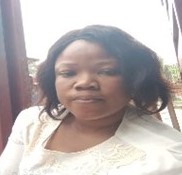on Real Estate Values
FEATURED PAPER
By Dr. Kalu Nwojo Awa, PhD i, Dr. Chicheta Frances Nissi i, Kelechi Oparaugo ii
i Department of Estate Management
University of Uyo, Nigeria.
ii Department of Estate Management
Abia State Polytechnics, Aba, Nigeria.
Abstract
Purpose – The study was carried out to determine the effects of refuse dumps on the rental values of residential and commercial properties in Aba.
Design/Methodology/Approach – Data were obtained from a combination of observations, interviews and discussions with 100 respondents drawn from households along Ngwa road and Port Harcout road where solid waste collection/assemblage centres were turned to open refuse dumps. The data collected were analysed to obtain the mean annual rental values of the buildings within specified distances from the refuse dumps in the study area.
Findings – the study reveals that there were differential rent charges of similar properties along Ngwa road and Port Harcourt road selected for the study. Rents of accommodation within 150metres from the refuse dumps dropped by 25% – 30% compared to similar accommodations located at a distance beyond 150metres from the refuse dumps.
Practical implications – There was increased rate of vacant occupation on properties adjacent to the refuse dump. Many tenants in the affected premises indicated their willingness to relocate due to the refuse dumps and the properties suffered much setback on upward rental reviews as demands for accommodation in the affected areas declined; thereby attracting lower rents compared to similar properties within the neighbourhood.
Originality/value – This paper gives insight to the impacts of solid waste dump on property values, which by implication approximately accounted for 25% – 30% differential rental values for commercial and residential properties compared with similar properties in the same neighbourhood.
Keywords: solid waste, refuse dumps, residential and commercial properties, rental values.
Introduction
Property values are functions of many factors both intrinsic and extrinsic. The extrinsic factors comprise essentially the locational factors where the immediate and external environment play vital roles. This implies that what happen around the property surroundings contribute in building the ultimate value that a property can attract in real estate market.
Urbanization is a common global phenomenon which arises as a result of population explosion. This virtually comes with multiple challenges/responsibilities required to maintain a functional urban centre among which is waste management. The complexity of urban activities ranging from industrial, commercial to domestic activities constitute major sources of waste generation (which are broadly classified into liquid, solid and gaseous). Porteous (1998), clarified solid waste to include “any refuse, certain sludge and other discarded materials, including solid and semi-solid materials resulting from industrial, commercial, mining, agricultural operations and domestic activities for which there is no economic demand and which must be disposed of.
More…
To read entire paper, click here
How to cite this paper: Awa, K. N., Nissi, C. F., Oparaugo, K. (2025). Economic Impacts of Solid Waste Pollution on Real Estate Values; PM World Journal, Vol. XIV, Issue I, January. Available online at https://pmworldlibrary.net/wp-content/uploads/2025/01/pmwj148-Jan2025-Awa-Nissi-Oparaugo-Economic-Impacts-of-Solid-Waste-Pollution.pdf
About the Authors

Dr. Kalu N. Awa
Uyo, Akwa Ibom State,
![]()
Kalu N. Awa is a Lecturer in the Department of Estate Management, University of Uyo, Nigeria. He holds a B. Tech. (Estate Management), M. Sc. (Estate Management), M. Phil. (Environmental Management) and PhD in Estate Management at Nnamdi Azikiwe University, Awka, Nigeria. His research interests include Real Estate Management and Investment Portfolio Management. He is an Associate member of The Nigerian Institution of Estate Surveyors and Valuers (NIESV) and a registered member of Estate Surveyors and Valuers Registration Board of Nigeria (ESVARBON). Kalu Awa can be contacted at kaluawa@uniuyo.edu.ng

Dr. Chicheta F. Nissi
Uyo, Akwa Ibom State,
![]()
Dr. Chicheta Nissi is an Associate Professor in the Department of Estate Management, University of Uyo and currently the Head of the Department. She can be contacted at Nissifrancis@uniuyo.edu.ng

Mrs. Kelechi Oparaugo
Aba, Nigeria
![]()
Mrs. Kelechi Oparaugo is a Lecturer in Abia State Polytechnics, Aba. She is currently running a PhD programme in the Department of Estate Management, University of Uyo. Email: kcoparaugo@gmail.com









